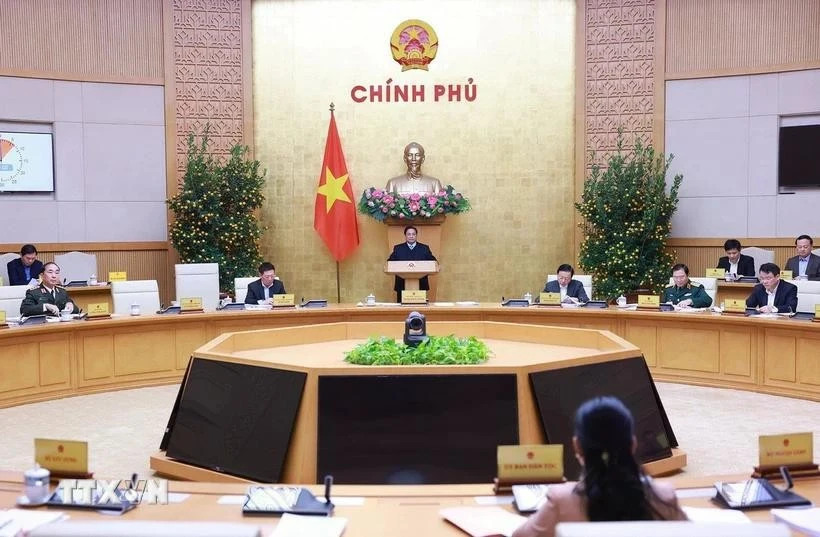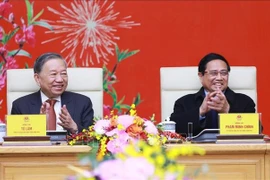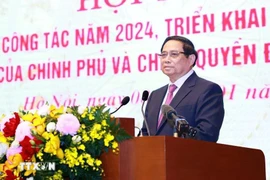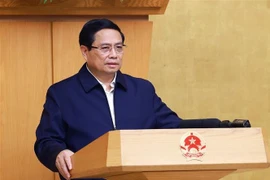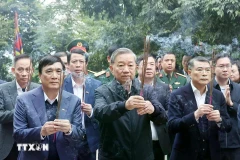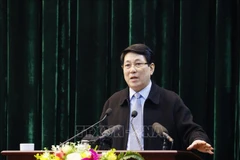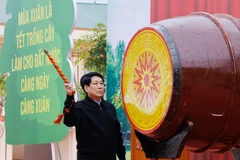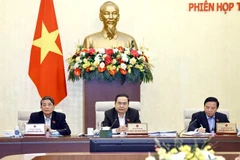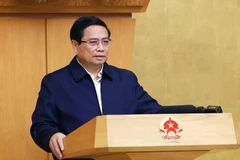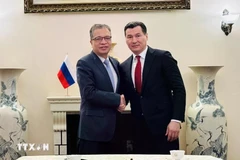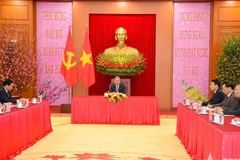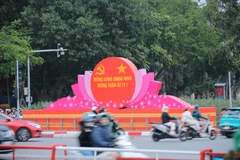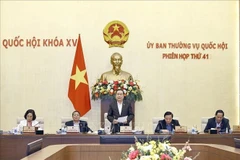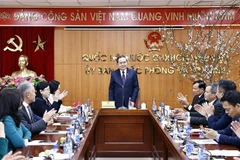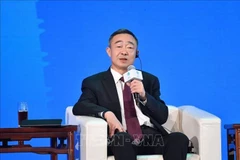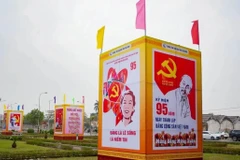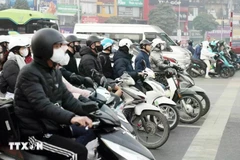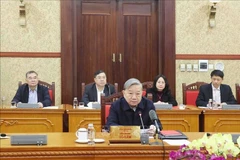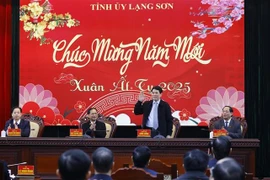Hanoi (VNA) – Prime Minister Pham Minh Chinh called for comprehensive and effective implementation of all tasks and solutions to ensure fast socio-economic development while chairing the Government’s meeting in Hanoi on February 5.
According to a Government report, Vietnam’s economy continued to perform well in the first month of 2025, showing positive improvements compared to January 2024.
The macro-economy remained stable, inflation was under control, and social welfare and major balances were ensured. The fiscal deficit, as well as public, government, and foreign debts were all effectively managed within permissible limits.
Socio-economic activities, consumption, and social welfare were notably more dynamic than during last year’s Lunar New Year (Tet) period. Key indicators such as industrial production, foreign direct investment (FDI), and state budget collection saw positive growth.
The consumer price index (CPI) rose 3.63% year-on-year, industrial production grew by 0.6%, with processing and manufacturing industries up 1.6%. The country also recorded a trade surplus of 3.03 billion USD, and FDI increased 21.8% to 3.55 billion USD.
The Government has focused on improving the business environment and driving forward infrastructure projects, particularly in sectors such as high-tech industries and data-driven technologies, while tackling bureaucracy and inefficiency.
Social welfare and cultural activities were also prioritised, with over 13.5 million people, including 3.8 million with disadvantaged backgrounds, receiving Tet gifts worth 7.9 trillion VND (313.8 million USD).
Vietnam has maintained strong political stability and sovereignty, while strengthening foreign relations and international integration, and fostering ties with Vietnamese communities abroad.
International organisations have continued their positive view on Vietnam’s economic growth, with institutions such as UOB, Standard Chartered, and the Asian Development Bank forecasting its GDP growth to hover around 7% this year, significantly outpacing the global average of 3.3%.
However, PM Chinh held that Vietnam is still facing many difficulties and challenges, including strategic competition, protracted conflicts, and global policy shifts. Domestically, many sectors are struggling, while public investment disbursement has remained slow.
In this context, the Government leader stressed the need of active policy response, strengthened solidarity of the political system and the people, and drastic actions to realise all set targets.
If each ministry, sector, agency, unit, and locality completes their monthly and quarterly tasks, so will the whole country, resulting in the fulfilment of targets for the whole year, the PM underscored.
Outlining major tasks for the coming time, PM Chinh pointed to the need to rapidly implement key resolutions, particularly the Party Central Committee’s Resolution No. 123, which sets a goal of achieving at least 8% growth in 2025.
He ordered further efforts to complete the institution, speed up the streamlining of the political system’s organisational apparatus, and promote administrative reform and digital transformation.
Special focus must be on maintaining macro-economic stability, controlling inflation, and ensuring economic balances, as well as monitoring policy changes in world powers for timely response.
He ordered ministries, sectors, and localities to save additional 10% in regular expense in 2025 for infrastructure development.
The leader underscored the need for greater attention to natural disaster response and climate change mitigation, as well as efforts in upgrading and replacing temporary and dilapidated houses, along with social housing development./.
